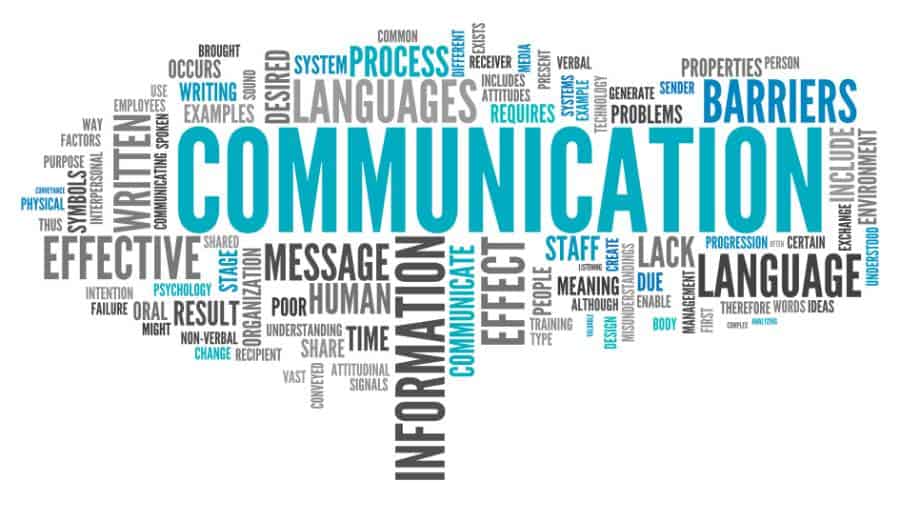This article may contain affiliate links. Please see our affiliate disclaimer in the footer menu for more information. Thank you for your support!

As digital communication has increased, it seems the importance of spelling has decreased. But is spelling any less crucial now than it’s always been?
Since omitting or adding a letter to a word can change its meaning, it’s evident how spelling slipups can have significant consequences.
Let’s explore eleven reasons why correct spelling is important in writing, as it’s always been.
1) Proper spelling shows we respect the reader’s time.
If you found a blog post that was chock full of misspelled words, would you continue reading it? Probably not.
No one is perfect, but taking the time to proofread our writing shows we respect the reader’s time and attention.
Making an effort to polish our prose reminds me of how my mom cleans and organizes the house before guests arrive.
It’s a lovely gesture that doesn’t take too much time but makes a big difference.
We want our guests to feel comfortable in our home, and we want our audience to feel comfortable reading our words.
Taking the time to tidy up our words just as we do our living spaces is a nice gesture.
2) It conveys professionalism and credibility.
Poor spelling looks unprofessional and makes people second-guess our credibility as a source of information.
If we couldn’t be bothered to spell words correctly, did we bother to do our research properly? Did we take the time to make sure our message is factually accurate?
If we can’t get the little things right, how will we handle the big things?
We need to try our best to spell words correctly if we want people to see us as an authoritative and reputable source.
How confident would you feel about buying a good or service from a company whose website was plagued with a plethora of spelling pitfalls?
Not very? Me neither.
3) Correct spelling enables us to communicate clearly.

If we misspell a word, it can take on a different meaning from what we intended.
Communicating clearly is essential, especially when it comes to legal and medical documents.
A misspelling in legal documents can alter the text’s meaning and lead to loopholes, misunderstandings, or disputes.
And spelling errors that cause confusion with a patient’s medical records can lead to improper patient care, resulting in potentially serious consequences.
We need to pay particularly close attention to homophones since they’re often the culprit in spelling mishaps.
Homophones are words that sound the same but have different meanings and usually different spellings (e.g., weather vs. whether, serial vs. cereal).
For example, consider this sentence:
That ice cream was worth the extra weight.
Oops! I meant to say that the ice cream was worth the extra wait.
I had to linger in a long line before I got to try it. I wasn’t thinking about the calories at all!
If you’d like to see more spelling mistakes involving homophones, check out the short video below.
It’s pretty funny and definitely worth watching!
4) It can prevent embarrassment.
Some spelling mistakes cause more embarrassment than others.
A classic example of a significant spelling snafu is writing pubic when you mean public.
For lawyers, typing statue instead of statute is a bummer.
As a former teacher of young children, I always asked parents to send an extra T-shirt and shorts instead of an extra T-shit.
I did NOT want to ask them to send T-shits of any kind. 😉
And when it comes to politics, let’s see an unfortunate spelling stumble highlighted in the article “The True Importance of Good Spelling” on the BBC:
“Autocorrection is probably why an official White House press statement recently called for ‘peach’ in the Middle East, rather than ‘peace,’ says Simon Horobin, professor of English language and literature at the University of Oxford.”
Source: the BBC
Whoopsie-daisy!
Another awkward goof is misspelling someone’s name.
Doesn’t it irk you—at least a tiny bit—when someone misspells your name?
5) Good spelling is important in writing to aid readability.
Do we want readers to stumble over our spelling slipups, or do we want them to easily understand our message?
Are you annoyed when you see a few too many spelling errors in books, articles, or text messages?
These mistakes cause us to pause when we’re reading.
They’re annoying because they break our concentration.
Readers of fiction may be particularly dismayed when they come across spelling errors. These blunders jolt them out of the narrative they’re enjoying and have become absorbed in.
Back to life, back to reality.
6) It enables authors to avoid criticism.

People can be quite vocal about their disappointment with bad spelling.
Authors who self-publish a book without a thorough sweep for spelling slipups can face substantial scrutiny.
Have you read Amazon reviews for books with too many spelling snags, punctuation pitfalls, and grammar gaffs?
They’re seldom five-star reviews, and regrettably, they can be overly critical.
The comments range from mild frustration to regret they purchased the book in the first place.
These reviews will lead others to avoid the same subpar reading experience, thus putting a damper on the author’s revenue.
7) Sound spelling allows writers to get more exposure.
Have you ever shared a document you found on social media or a website?
We tend to share writing that’s well-written and as error-free as possible.
Documents with polished prose are usually the result of someone spending time to ensure that what they say comes across clearly and can be understood with minimal effort.
A seamless reading experience is a pleasant reading experience.
Texts that pass the spelling test are more likely to be seen by more eyes, leading to increased engagement.
And any business trying to boost brand awareness and build its customer base will benefit from more eyeballs.
8) It ups the odds of someone’s work being published.
Proper spelling is crucial, whether it’s a professor or researcher trying to get their work published in a scholarly journal or an author aiming to publish their book manuscript.
An article on Elsevier highlights the value of proofreading by stating the following:
“It [proofreading] can also be the difference between acceptance and rejection in a distinguished journal. No author creates an excellent text without reviewing, reflecting, and revising – or trusting someone to do so – before the final version of their manuscript is complete and submitted.”
Source: Elsevier
The author explicitly mentions spelling mistakes—including typographical errors—among the blunders that need to be found and fixed.
9) It boosts a job applicant’s chances of being hired.

Poor spelling is typically indicative of carelessness.
One may assume that if an applicant didn’t take the time or use the resources to eliminate misspelled words in their résumé or cover letter, they may not take the time to care about the work they’d be performing in their future job.
The International Journal of Selection and Assessment published an article with this lengthy title:” ‘Without the spelling errors I would have shortlisted her…’: The impact of spelling errors on recruiters’ choice during the personnel selection process (source).”
It’s clear from the title that spelling mistakes decreased the likelihood that a recruiter would hire an applicant.
Someone may be a fantastic fit for a job, but the hiring manager may not consider their outstanding qualifications if they find spelling slipups in their application.
10) Solid spelling helps students in many ways.
Stellar spelling can translate into better grades for students. Too many misspelled words can lead a teacher or professor to assume a student rushed through an assignment or didn’t take it seriously.
And for high schoolers, an admissions essay or personal statement free of flubs boosts their chances of getting accepted to their college of choice.
Finally, for graduate students to produce exceptional theses and dissertations, spelling snafus need to be snuffed out.
Spelling mistakes can make a student’s argument less convincing since it may lead people to question how conscientiously they conducted their research.
11) It can save your dollars from going down the drain.
Spelling missteps can cost mucho dinero!
Reader’s Digest published an article called “11 of the Most Expensive Typos in the World.”
One typo involved a travel agency that had paid for an ad to be displayed in the Yellow Pages. For those too young to remember, the Yellow Pages, published by Pacific Bell, were big ole books listing the telephone numbers of businesses.
Unfortunately, Bell published an ad showcasing the company’s vacation destinations as erotic instead of exotic.
Since much of the company’s client base was older, the ad had devastating financial consequences. The agency sued Pacific Bell for $10 million.
It’s incredible (and disheartening) to see how one wrong letter can wreak havoc on a company’s bottom line.
I hope this article helped you understand why spelling is important in writing.
May you achieve personal fulfillment and success with your writing endeavors!
I penned a post about proofreading tactics if you’d like suggestions for keeping spelling stumbles (and other errors) out of your writing.
Best wishes to you!
“There are only two ways to live your life. One is as though nothing is a miracle. The other is as though everything is a miracle.”
– Albert Einstein

Recent Posts
Punctuation is important because it enables us to communicate our message clearly and effectively. Without punctuation, we wouldn’t understand how units of a sentence relate to one another or how...
Although you're probably somewhat familiar with adverbs, you may be unaware of sentence adverbs. As a trained proofreader who has studied the parts of speech, I can help you understand this unique...
